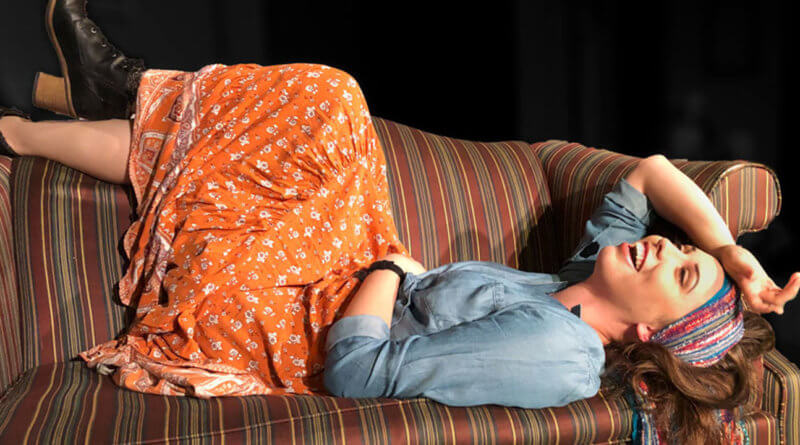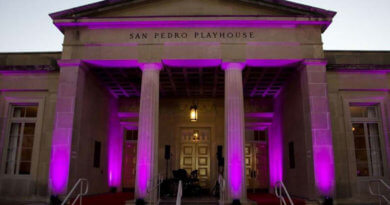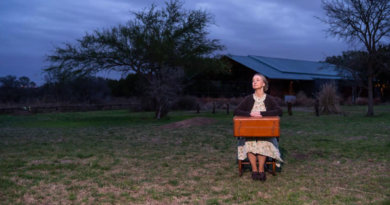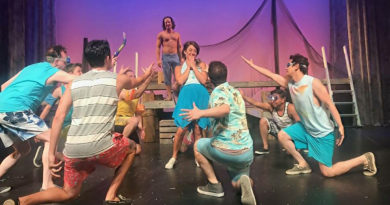Shakespeare Redux: An Interview with the Overtime’s Emily Fitzgerald
Opening at the Overtime Theater next Friday, Feb. 14, is the Shakespeare comedy Twelfth Night. Adapted and directed by Emily Fitzgerald, this version brings the classic story into the 21st century. Ms. Fitzgerald spoke to ArtScene SA about her new adaptation, the revisions she made, and how it fits in with the Overtime’s motto of “theater for the people.”
ArtScene SA: What sorts of changes did you make to the piece?
Emily Fitzgerald: The language is all still Shakespeare. I didn’t rewrite it for contemporary language, because why do Shakespeare if you’re not going to use his words? Basically, what I did, which is not unusual at all, is to streamline a lot, because a lot of Shakespeare is redundant. It’s long. Some things, such as the jokes delivered by Feste, the joker, we just don’t get anymore because there was a social and political context that we don’t know now. The only language that I changed was things like “knife fights” instead of “sword fights.” Because we’re wearing modern clothes, where would you put your sword?
I tried to make it a little more palatable to modern audiences. It’s not that it’s short — but certain things are shortened. Certain characters are cut who didn’t need to be there to get it down to a cast of only 12 actors.
12 actors is still a lot! How did you make it all work in that limited space?
There are seven different settings that occur — the seashore, a random street, the duke’s palace, Olivia’s home, her garden… It’s massive. We can’t build all of that in that space, so we have slides for every scene telling you where things are happening. The same space on the stage is used for pretty much everything.
But there’s an advantage to it, too. Not having a lot of spectacle allows us to really see the characters and to pay attention to the language, which is the joy of doing Shakespeare. It’s the hard part, but it’s also the most rewarding part. It’s nice to be able to just strip it down to the essentials so that you really hear the language. In fact, in Shakespeare’s day, that’s what they said — “Let’s go hear the play.”
We’ve also gone to another theatrical level in keeping all the actors onstage most of the time. They sit around the edges. That allows us to have much faster and cleaner transitions between all those scenes, because some of those scenes are pages and pages long, but some are a single sheet. It’s fast! With a change of light and while the slide is transitioning, they can walk in and out. We do use the backstage for entering at times, but for the most part, they’re always there. I’ve seen this used before to great effect by the Royal Shakespeare Company. It’s something that I’ve always wanted to try.
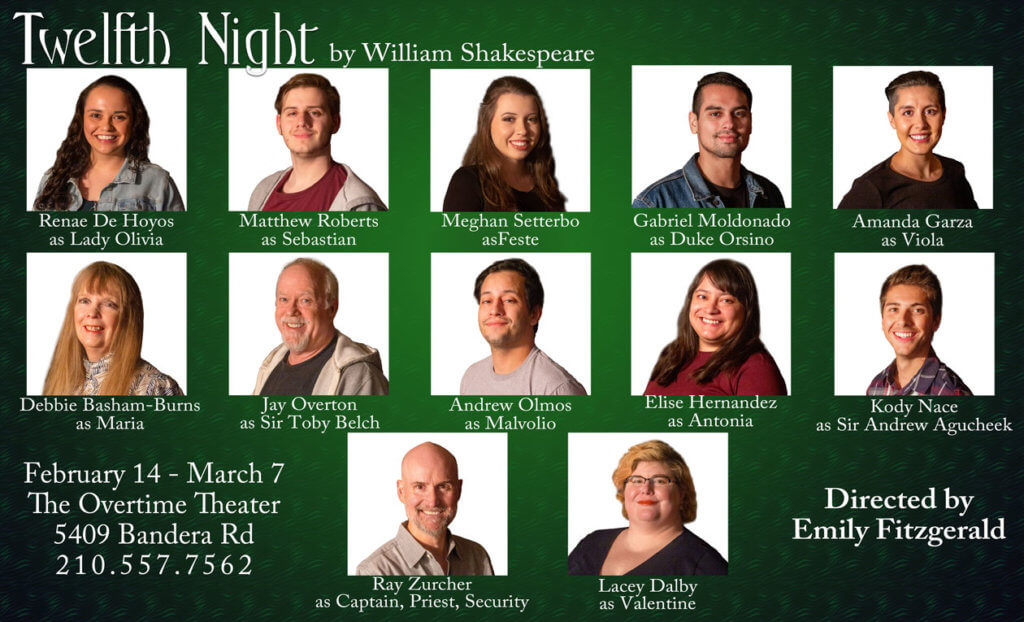
Tell us about the cast and the characters.
It’s a darn good cast. The age range of this cast is 20 to 60. Half the cast is Hispanic and half is white. I have several lesbian actors and a non-binary actor. I love having a diverse cast. They bring so many different points of view, life experiences and perspectives.
One of the characters that changed gender on is Antonio, who saves Sebastian. We’ve changed that character to Antonia. Because of the modernization, her being a pirate didn’t make sense to us, so she’s actually kind of a biker now. She’s the one who brings a gun to a knife fight and stops that cold!
I really love what I guess you’d call the “low characters” — Sir Toby Belch, Maria, Andrew Aguecheek and Feste. They’re the mischief-makers. And there’s some darkness in Twelfth Night that people don’t expect. Maria and Toby are con artists. They’re grifters, and watching how sinister they can actually be when they drop their façades and are just talking to each other has been really fun for me.
Since the Overtime specializes in producing original works, why do something as familiar as Shakespeare?
I’m also the promotions director at the Overtime, and there’s always an extra challenge in promoting what we do since we do all original pieces. When someone at another theater says, “I’m doing Mary Poppins” — well, everyone knows what that is. It’s not hard to engage people. But I’m dealing with trying to get people to see 27 Short Plays About Being Murdered in a Hotel Room By Abba or Gay Men with Wives. That’s always a challenge.
I just wanted to do a show whose title people are familiar with. “Hey — Twelfth Night!” But it’s original in the sense that Shakespeare is always original — it’s how you approach the material. And this is original. You won’t have seen these people in these costumes and these performances, which are truly exceptional. I have a Master’s degree in theater, and one of the things we studied was the universality of Shakespeare. It translates to every time, every place and every culture. It’s also a lot of fun!
How do you hope contemporary San Antonio audiences will receive the show?
Some people will come because they love Shakespeare, but I hope others will come because they’re terrified — or they hate it, remembering it from high school. I hope they give it another chance. This version is very accessible. Everyone in the cast is in pants, or a t-shirt or a bathrobe. They’re recognizable people. And they’re understandable. I find that if the actors understand what they’re saying, the audience will too.
I want people to say, “Oh, that’s Shakespeare — and it’s funny!”
Twelfth Night plays Feb. 14, 15, 21, 22, 28, 29 and March 6 and 7 at 8:00 p.m. with a matinee on Feb. 23 at 3:00 pm and an early show on March 1 at 7:00 p.m. All shows are held in the Overtime’s Greg Barrios Theater, 5409 Bandera Road. For reservations, please contact the Overtime at theovertimetheater@gmail.com or (210) 577-7562, or through Brown Paper Tickets.
Feature photo: Meaghan Setterbo as Feste (photo: Jay Overton).

